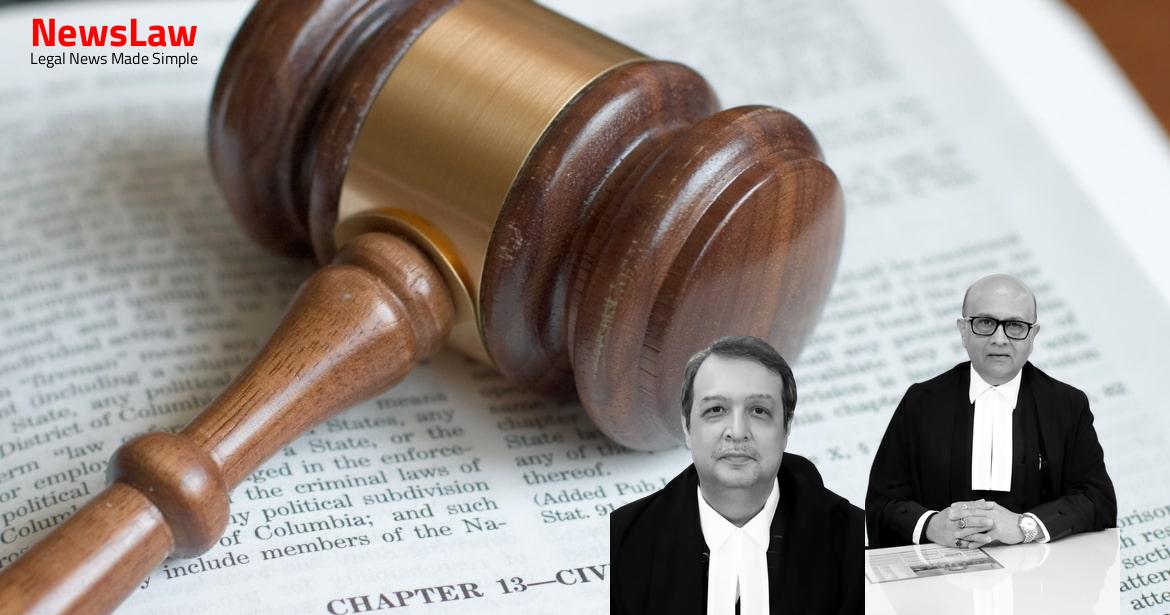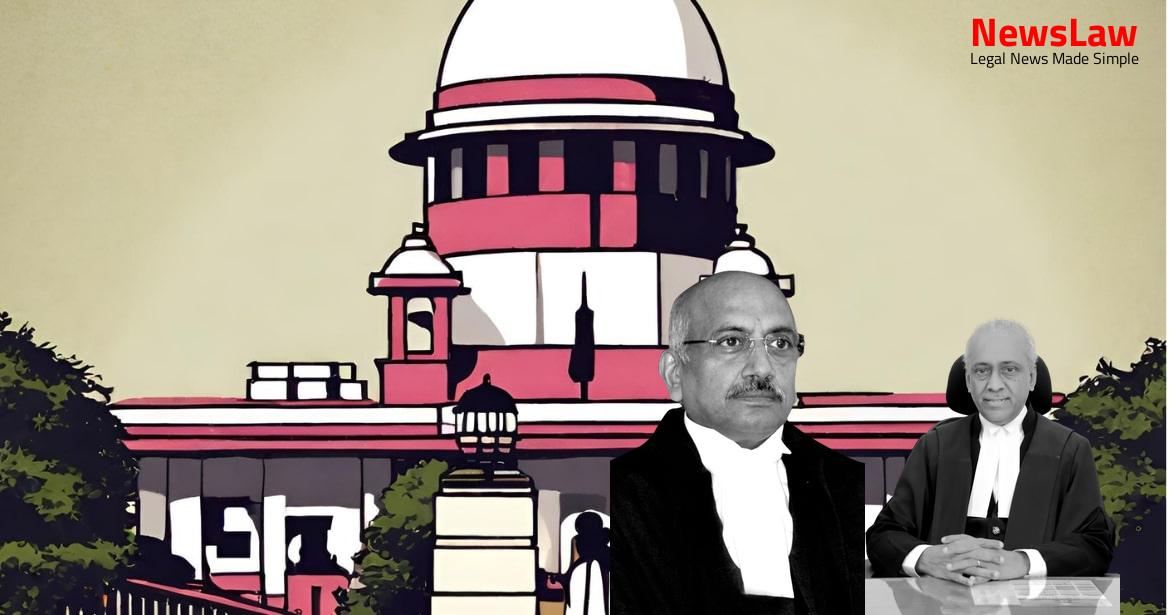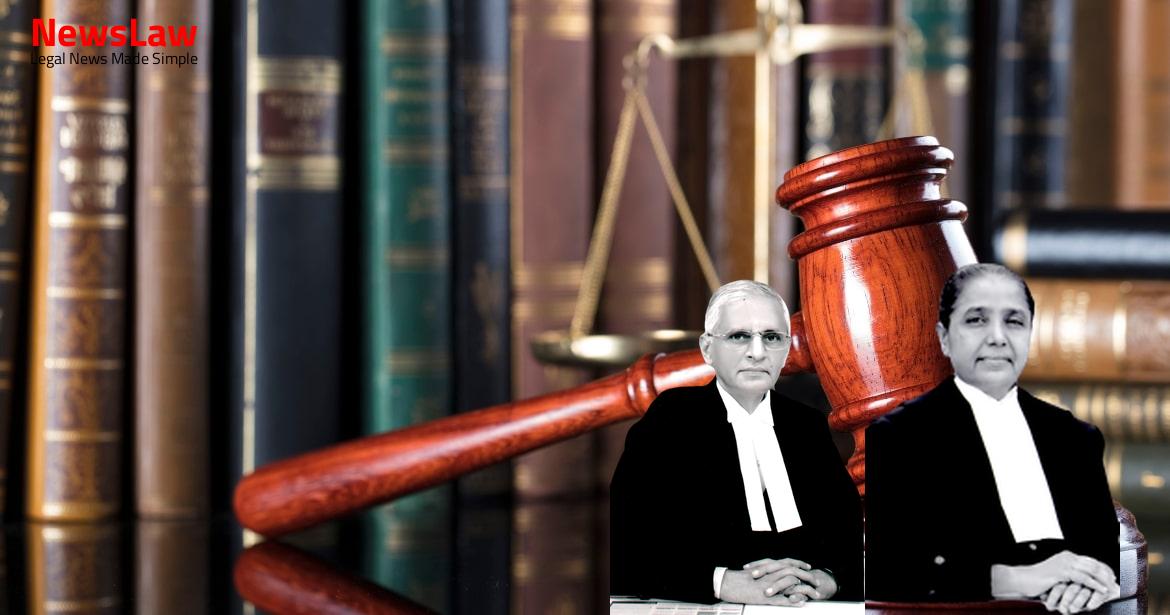In a significant legal development, the Supreme Court of India has delivered a judgment in the Railway Compensation Case. The case revolves around the entitlement to compensation for the deceased passenger, with implications for railway accident claims. Stay tuned to learn more about this landmark decision.
Facts
- The appellant argues that the deceased was indeed traveling in the train on 5 September 2023, supported by the final report submitted by the Investigating Officer to the Sub-Divisional Magistrate, Rangiya.
- Post-mortem report mentioned head injuries due to a blunt force impact as the cause of death.
- Lack of evidence to show the deceased boarded the train.
- Appellant’s failure to produce best evidence is highlighted.
- Appeal arising from the High Court judgment regarding the incident on 5 September 2023.
- Deceased’s body found on 8 September 2003, three days post-incident.
- Tribunal framed issues including passenger status, incident definition, and entitlement to compensation.
- Appellant and cousin deposed as witnesses but were not eye witnesses to the death.
- Railways did not present any evidence during the proceedings.
- Death estimated between forty-eight to seventy-two hours before post-mortem.
- Investigating Officer’s report deemed insufficient to rebut the presumption under Section 191 of the Railways Act.
- Appellant filed a claim seeking compensation of Rs 4,00,000 for her brother’s death.
- High Court dismissed the review application as no new facts were presented.
- Appellant failed to prove that deceased was a passenger on the train.
- IO report was based on a ‘secret enquiry’ which was not substantiated.
- Tribunal concluded no evidence to prove deceased died from falling off the train.
- High Court found body near railway track but no proof of deceased being a passenger on the train.
- Post-mortem report inconclusive about the date of death.
- IO report lacked substantive material and could not be accepted as evidence.
- Tribunal dismissed claim as deceased was not proven to be a passenger on the train.
- Review petitions were also dismissed by the High Court.
Also Read: Scheduled Castes Reservations: Sub-Classification Dispute
Arguments
- The appellant, Mr. Hansaria, argued that it is not necessary to produce a valid ticket to claim compensation under Section 124A of the Railways Act 1989.
- He referred to the decision in Union of India v. Rina Devi to support his argument.
- Mr. Hansaria also pointed out that the law laid down by the Court in previous cases has clarified how compensation under the Railways Act should be calculated, including entitlement in case of an increase in the permissible amount.
- Additionally, he requested that the appellant should be awarded interest as per the law.
- In response, the respondent argued that the appellant did not provide a reason for the delay in discovering the deceased’s body, suggesting that other railway employees may have found it earlier.
- The respondent supported the judgments of both the Tribunal and the High Court.
Also Read: Case Summary: Bar Council of India vs. State Bar Councils
Analysis
- Estimation of time of death in the post-mortem report differed from the time stated by the Investigating Officer (IO).
- The post-mortem report indicated antemortem injuries due to blunt force sustained by the deceased.
- High Court noticed the time of death estimated by the post-mortem report and concluded it was not on September 5, 2003, as the examination was conducted on September 9, 2003.
- Errors were found in the judgments of the Railway Claims Tribunal and the High Court regarding the primary issue of whether the deceased was traveling on the train.
- Conclusions in post-mortem reports regarding the time of death are approximations.
- The appellant filed an affidavit supported by the investigation report showing the deceased was traveling on the train and his death resulted from a fall during the journey.
- The burden of proof shifted to the Railways, which they did not discharge.
- It was indicated that the deceased fell off the train at approximately 11:15 pm on September 5, 2003, as per the IO’s report.
- Presumption of the deceased being a bona fide passenger on the train was not rebutted based on the timeline of events.
- Conclusion drawn from the material on record indicated that the deceased was indeed a bona fide passenger on the train and his death resulted from injuries sustained during the fall.
- The cause of death was identified as due to head injury caused by blunt force impact, and all injuries were antemortem.
- In the case of Rina Devi (supra), the claimant is entitled to interest from the date of the accident.
- If the calculated amount is less than the amount prescribed on the date of compensation, the claimant is entitled to the higher of the two amounts.
- The principle laid down in Rina Devi (supra) serves a salutary purpose.
- This principle was cited in the decision in Radha Yadav (supra) for benefit of the amendment to the extent possible.
- In 2003, the compensation for the death of a passenger was Rs 4,00,000 as per the Railway Accidents (Compensation) Rules 1990.
- Rina Devi (supra) discussed burden of proof in cases where the deceased is found on railway premises.
- Absence of a ticket does not negate the claim that the deceased was a bona fide passenger according to Rina Devi (supra).
- The initial burden of proof lies on the claimant, which can be discharged by filing an affidavit of the relevant facts.
Also Read: Time-Barred Arbitration Claim: Landmark Decision by Supreme Court Of India
Decision
- Compensation payable for the death of a passenger is Rs 8,00,000 as per GSR 1165(E) dated 22 December 2016.
- Appellant’s bank account details must be provided to the respondent for seamless fund transfer.
- The compensation must be paid by the respondent to the appellant by 30 September 2024.
- If not paid by the due date, interest at the rate of six per cent per annum will be applicable.
- District Legal Services Authority to provide appellant’s details for payment facilitation.
- Appellant is entitled to the compensation of Rs 8,00,000 as per the judgment.
Case Title: DOLI RANI SAHA Vs. UNION OF INDIA (2024 INSC 603)
Case Number: C.A. No.-008605-008605 – 2024



